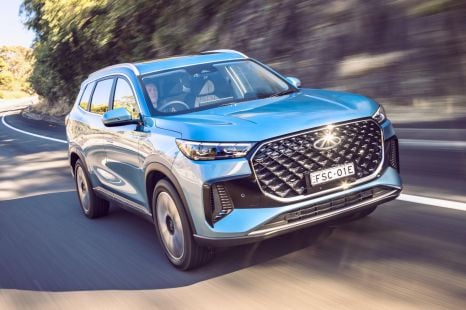

Max Davies
5 Days Ago
The base Corolla Cross remains a safe and affordable option in a hotly-contested segment. We'd still line up for the hybrid, though...



Quickly see how this car stacks up against its competition. Select any benchmark to see more details.
CarExpert helps new car buyers save thousands with expert reviews, honest advice, and transparent pricing – no dealer pressure and no sales games.
The Toyota Corolla Cross has now spent its first full year on sale, and unlike most other small hatch-based crossovers it hasn’t immediately challenged its donor car on the sales charts as yet.

We’ve seen the Mazda CX-30 now dominate the related Mazda 3, a nameplate that was once Australia’s most popular new vehicle; and elsewhere the Kia Seltos and Subaru Crosstrek now easily outsell their long-running Cerato and Impreza siblings.
However, the Corolla Cross is yet to match its top-selling Corolla hatch and sedan equivalent in Australia just yet, much like the Hyundai Kona hasn’t overtaken its top-selling i30 range.
Why? Toyota’s well-known supply issues have occurred across the bulk of its range, and high global demand for the Corolla Cross – particularly hybrid versions – meant that the Japanese brands had to be cautious with local sales and supply projections from the get go.
With 7932 units registered in 2023, the Corolla Cross is averaging less than 1000 units per month, despite increasing wait times. It seems most buyers are gunning for the efficient hybrid option, still something of a rarity in such a hotly-contested segment.
But here on test we have the cheapest variant you can buy in Australia, the 2024 Toyota Corolla Cross 2WD with the standard 2.0-litre naturally aspirated petrol engine.
Priced from $33,980 before on-road costs, the base Corolla Cross shows off the bare fundamentals of what is a capable product – minus the bulk of the bells and whistles that headline the upper end of the range.
Is it worth a look if you’re after no-nonsense, reliable transport?
Pricing for the Corolla Cross has risen by around $1000 since the crossover first launched late in 2022.
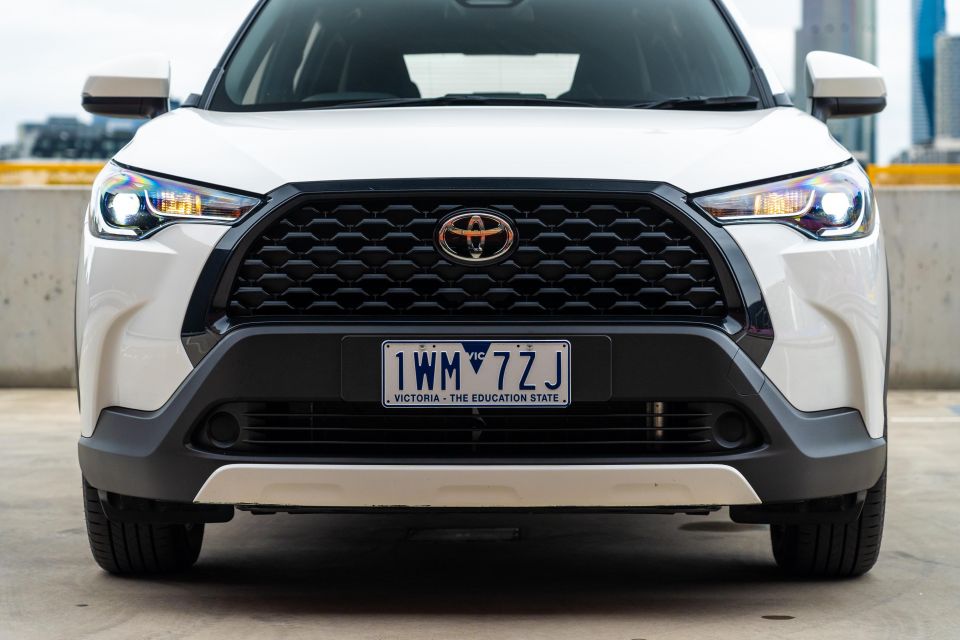
2024 Toyota Corolla Cross pricing:
Prices exclude on-road costs
There’s a bit of a ‘fleet-spec’ vibe that extends from the exterior to the cabin, with a polyurethane steering wheel and hard door trims. In fairness, there are a number of entry-level SUVs that undress the cabin like this at base level.

While the drab grey colour scheme and utilitarian materials don’t give off the plushest of vibes, the hard-wearing cloth, clean layout and clear displays make the Corolla Cross’s cabin feel very functional and durable.
The front seats are comfortable, offer decent bolstering to support you in the right places, and there’s good adjustment in both the driver’s seat and steering wheel so that even lanky people like myself can get comfy.
While the steering wheel lacks a leather or leather-look finish, I’m a fan of its compact rim and well-placed multifunction controls. It sits comfortably in the hand… provided you haven’t left it out in the sun for too long.
Ahead of the driver is a 7.0-inch digital cluster display you’ll also find in the higher-up GXL, and it’s suspiciously similar in size and design to the unit used in more expensive vehicles like the Lexus NX.
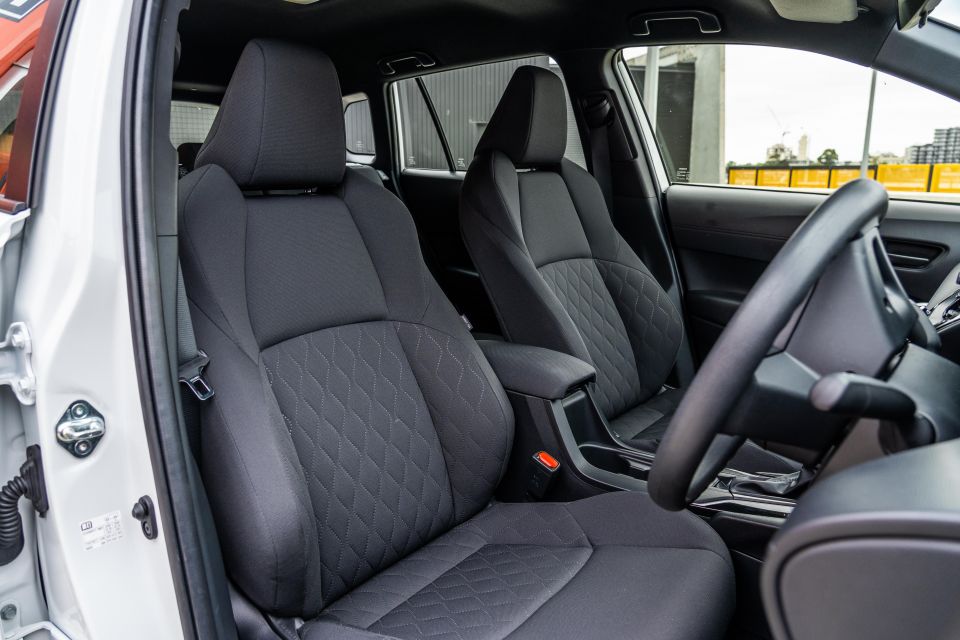

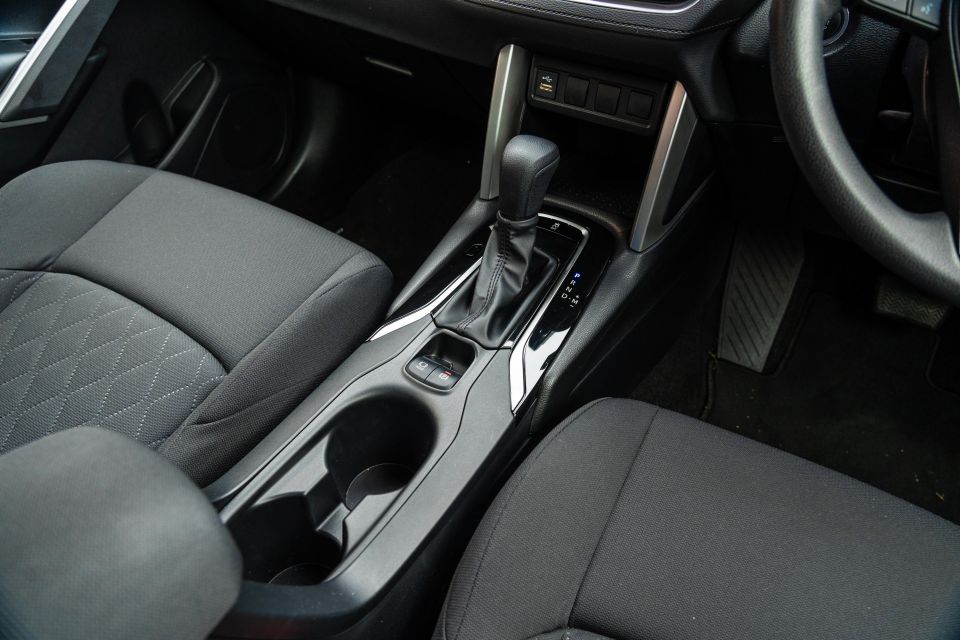

Sitting atop the dashboard is an 8.0-inch touchscreen shared with other models in the Toyota line-up, offering wireless Apple CarPlay and wired Android Auto, but without factory satellite navigation in this spec.
It does offer Toyota Connected Services; however, which includes a 12-month subscription to an array of net-based services such as remote functions via your smartphone and an intelligent voice assistant activated by saying “Hey Toyota”.
The thick bezels around the screen may not be super attractive, but the latest generation of Toyota’s infotainment is a massive step forward in look and feel compared to even the most recent iteration, and in practice it’s a much snappier and more fluid experience.
Wireless Apple CarPlay worked flawlessly during our time with the Corolla Cross and is a cinch to set up, while audio quality from the standard six-speaker audio system is fine given the price point and this variant’s positioning.

Below the tablet-style display are physical climate controls nicked straight from the Corolla Hatch and Sedan. These are clearly labelled, easy to use and nicely designed. The GX gets single-zone climate, while GXL and Atmos models feature dual-zone functionality, and all models score rear air vents too.
Storage up front is also good, thanks to a deep cubby under the centre stack. However, there’s no wireless phone charger in this grade. You do get cupholders between the front seats, a small-ish centre bin and door pockets that can accommodate an average bottle and other small items.
Like we assessed at the launch, the Corolla Cross’s rear seat is more accommodating than some smaller crossovers, but it’s not quite the size of something like a RAV4. I’m 6’1 and can fit behind my preferred driving position fine; although, it’s a bit snug in terms of knee room. Head and toe room otherwise are good for the class.
Two adults will be fine back there, and the Corolla Cross’s big rear windows mean it’s a much better family carrier than the related C-HR. You also get directional rear air vents as mentioned earlier, a map pocket behind the front passenger seat, as well as bottle holders in the doors.
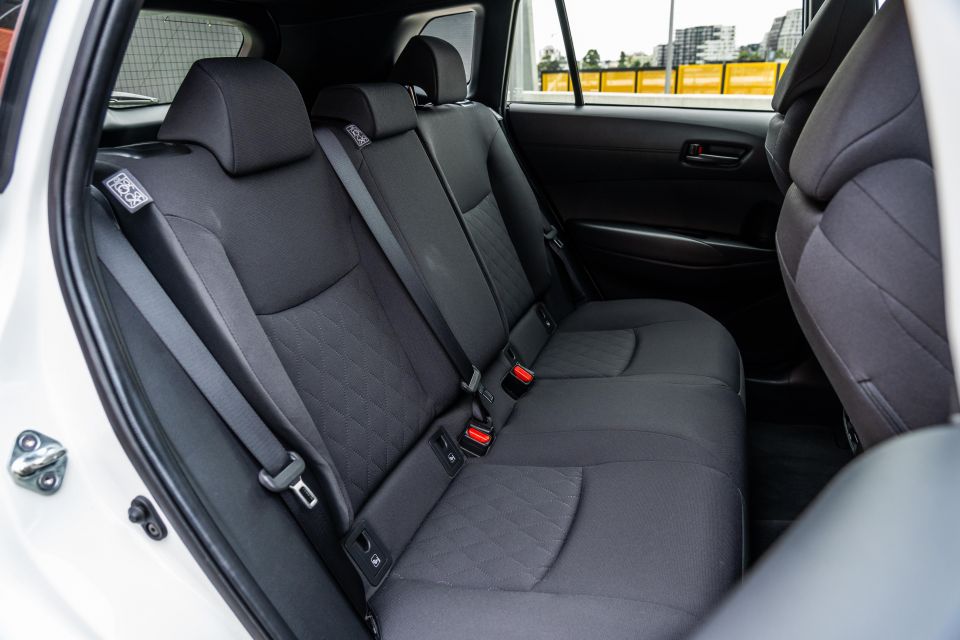
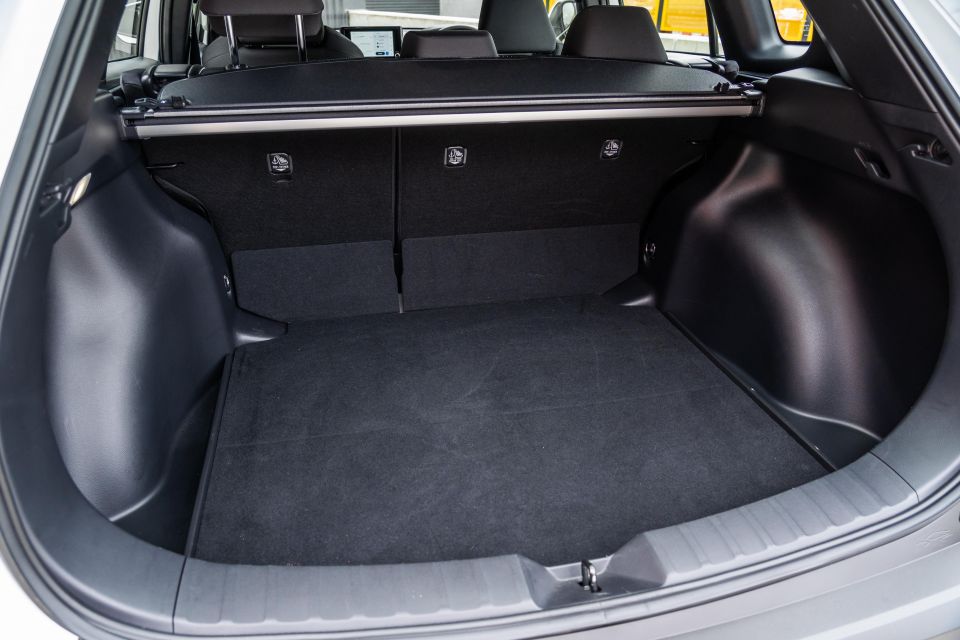
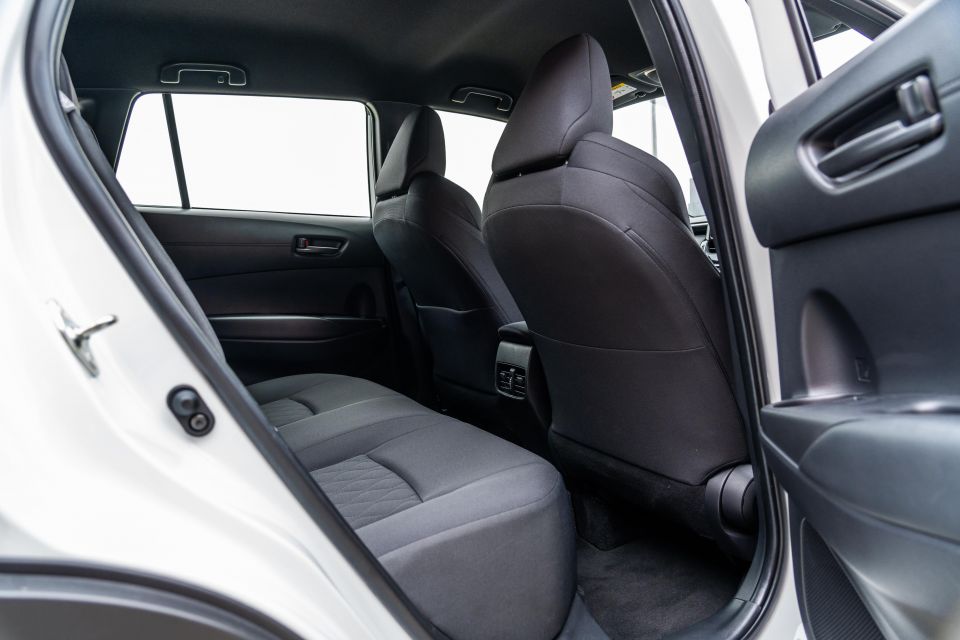
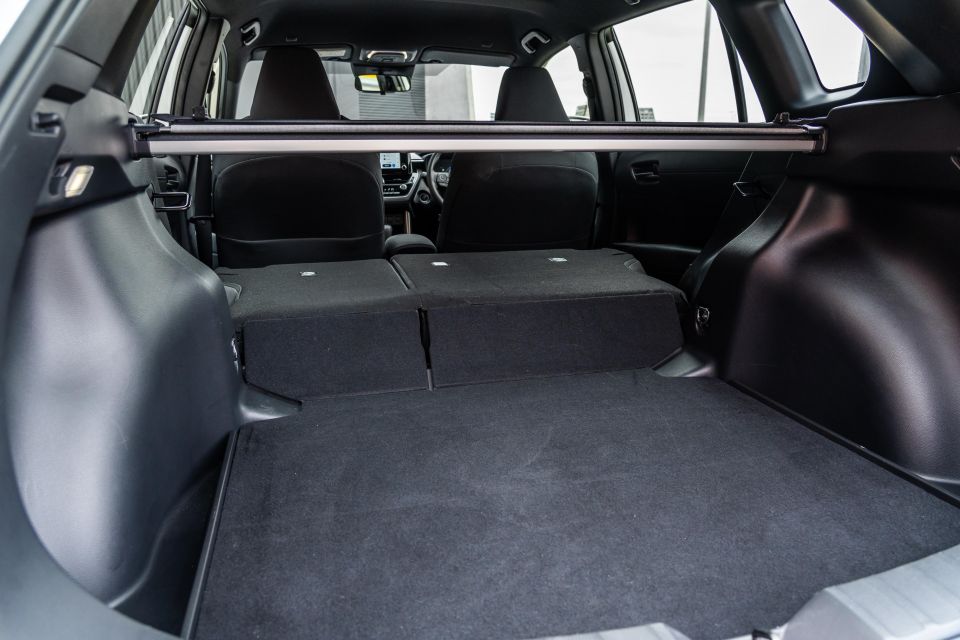
Speaking of the kids, there are ISOFIX anchors on the outboard positions, as well as top-tether points across all three rear seats. The boot capacity of the Corolla Cross largely depends on the variant you choose, but the GX and GXL 2WD petrol versions offer the most space at 436 litres in five-seat configuration.
You’ll find a temporary space-saver spare wheel under the boot floor, which is better than AWD Hybrid models with their repair kits, but rivals like the Kia Seltos offer full-size spares across the bulk of the range.
Petrol versions of the Corolla Cross run a 2.0-litre naturally-aspirated four-cylinder engine developing 126kW at 6600rpm, and 202Nm between 4400 and 4900rpm. It’s the same ‘Dynamic Force’ motor as the Corolla Hatch and Sedan.
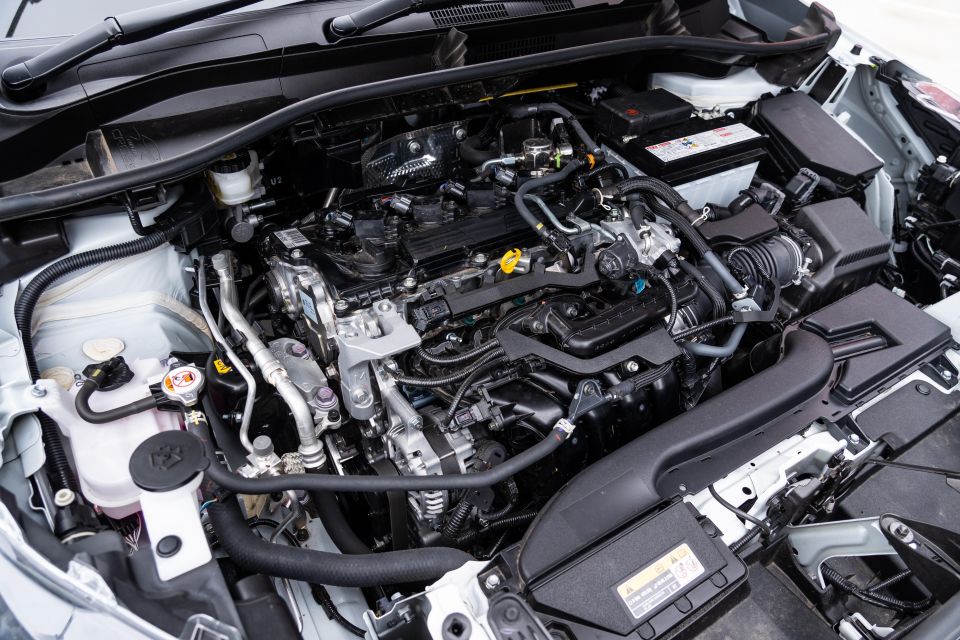
Drive is sent to the front wheels via a continuously variable transmission (CVT) which features 10 virtual ‘speeds’ in its Manual mode, as well as a launch gear.
Combined fuel consumption is quoted at 6.0L/100km, while CO2 emissions are rated at 136g/km. Unlike some other vehicles in the Toyota line-up, the petrol engine doesn’t feature idle stop/start technology.
All versions of the Corolla Cross run on regular 91 RON unleaded, with fuel tank capacity dependent on the drivetrain. 2WD petrol versions get a 47-litre fuel tank, while 2WD Hybrid and AWD Hybrid offer 36L and 43L tanks respectively.
Toyota quotes a 0-100 time of 9.0-9.2 seconds for the petrols. Top speed is rated at 198km/h. All versions of the Corolla Cross are rated to tow up to 750kg (braked).
In keeping with its entry-level positioning, the base Corolla Cross petrol is decent across all metrics without being a standout.

The naturally aspirated 2.0-litre petrol engine fires up with a tinny rumble, and as we’ve experienced in other Toyota models with this petrol-CVT drivetrain, it gets along with usual duties just fine.
It’s a basic, economy-class drivetrain that’s best driven in a more sedate and relaxed manner. Demand more of it and it can get quite coarse and noisy under load, though it at least translates to reasonable progress all things considered.
The petrol model’s CVT has 10 simulated ‘steps’ and an actual launch gear, so it does a good job at mimicking a conventional automatic under acceleration while also dropping revs at a cruise to improve economy.
Around town the petrol Corolla Cross gets up to speed without much fuss, and the cushy ride (thanks in part to the chubby tyre sidewalls) do a good job of ironing out the lumps and bumps of inner-city Melbourne.
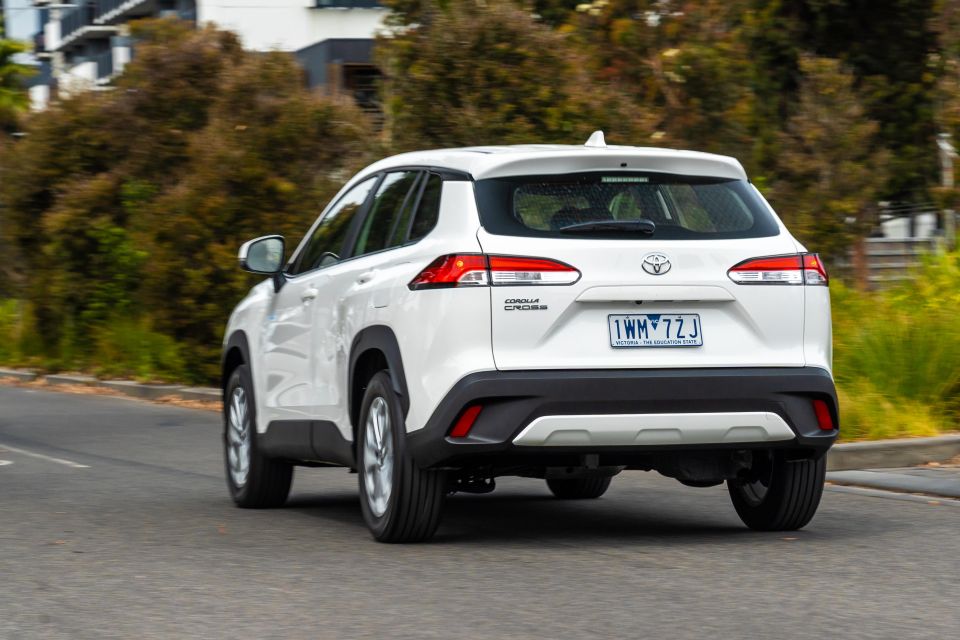
It also handles in typical Toyota fashion in that it’s a sweet steer. The fluid steering and responsive front end that are common to TNGA-based products these days make the Corolla Cross very easy to drive, and there’s a level of talent in the chassis that encourages driver engagement.
Everyday environments like the city and suburbs demand less from the naturally-aspirated petrol engine, meaning the general ambience is smooth and refined. However, it’s not as responsive nor as efficient as the $2500 dearer hybrid version.
Unlike the larger RAV4 with effectively the same engine, the Corolla Cross lacks fuel saving idle stop/start technology – which meant our traffic-heavy week of daily commuting saw the fuel consumption blow out into the eights and nines on average in city and urban settings.
I’ll also note the CVT transmission’s physical launch gear also negates the elastic, slingshot sensation that many transmissions of this type exhibit off the line, which is a strong point.

Once you hit the highway the Corolla Cross again gets the job done without much fuss – unless you really push it, which again leads to a shouty engine note.
Being naturally aspirated, peak torque doesn’t come on tap until quite high in the rev range – 4400rpm – so if you’re in a rush or need to overtake, you’ll need to rev hard to get the best out of it. As noted earlier, it’s not the most refined power unit when being driven in this manner.
Once at a cruise; however, the engine settles into a pretty silent hum, with the CVT able to drop revs to about 1500-1600rpm at around 100km/h. Not bad. Wind and road noise levels are good for the class, in a segment where highway refinement often takes a figurative back seat. It’s also a notable improvement on the standard Corolla passenger models.
Toyota also needs to be commended for including an expansive suite of driver assistance systems and LED highlights from the base grade – looking at you, Kia.
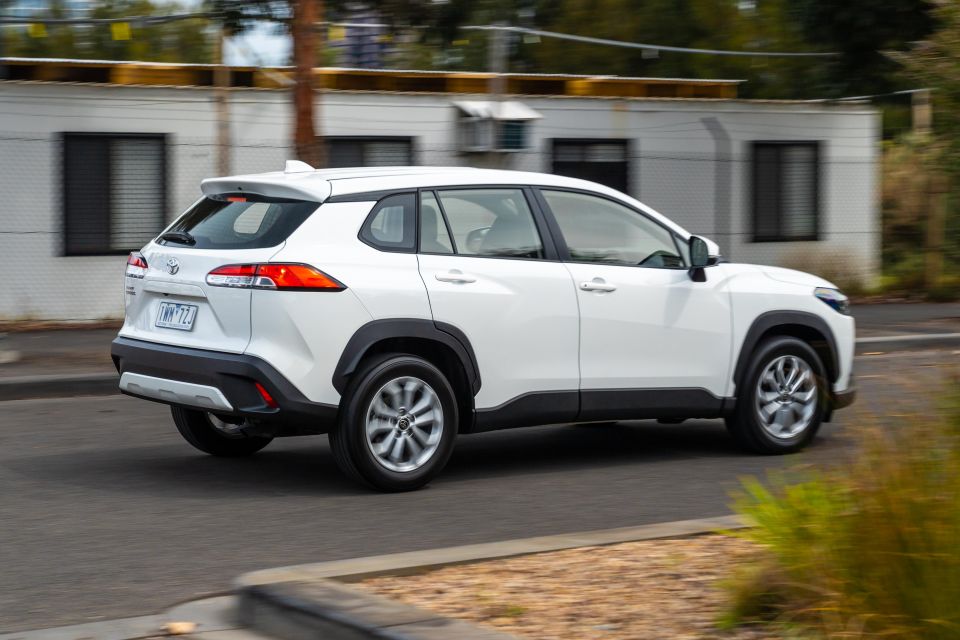
All versions of the Corolla Cross feature adaptive cruise control with stop/go that combines with Lane Trace Assist to facilitate semi-autonomous driving on the highway, and it’s a pretty unintrusive co-pilot, unlike Toyota systems past.
There are also handy inclusions like blind-spot monitoring and rear cross-traffic alert – though the plentiful glasshouse means outward visibility is quite good – and there’s even lane change assist that gently steers towards the adjacent lane when indicating; a feature typically offered by high-end luxury cars.
Rounding out the headline standard inclusions is a reversing camera with adaptive guidelines. It offers decent resolution for the spend – unlike the very average surround cameras on up-spec versions – though there are no supplementary parking sensors on the base model.


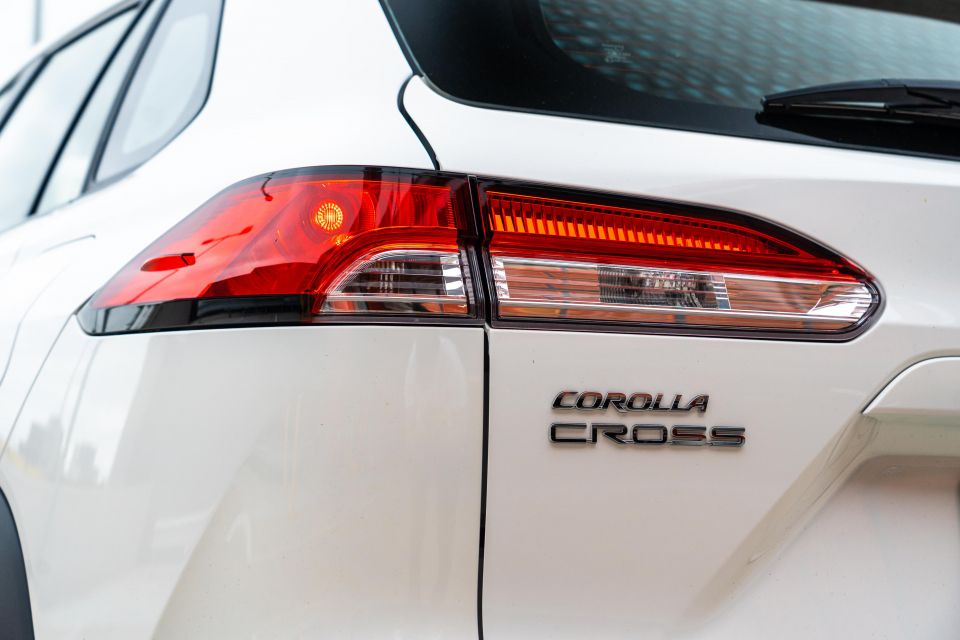

Corolla Cross GX highlights:
The Toyota Corolla Cross wears a five-star ANCAP safety rating against 2020-2022 criteria.
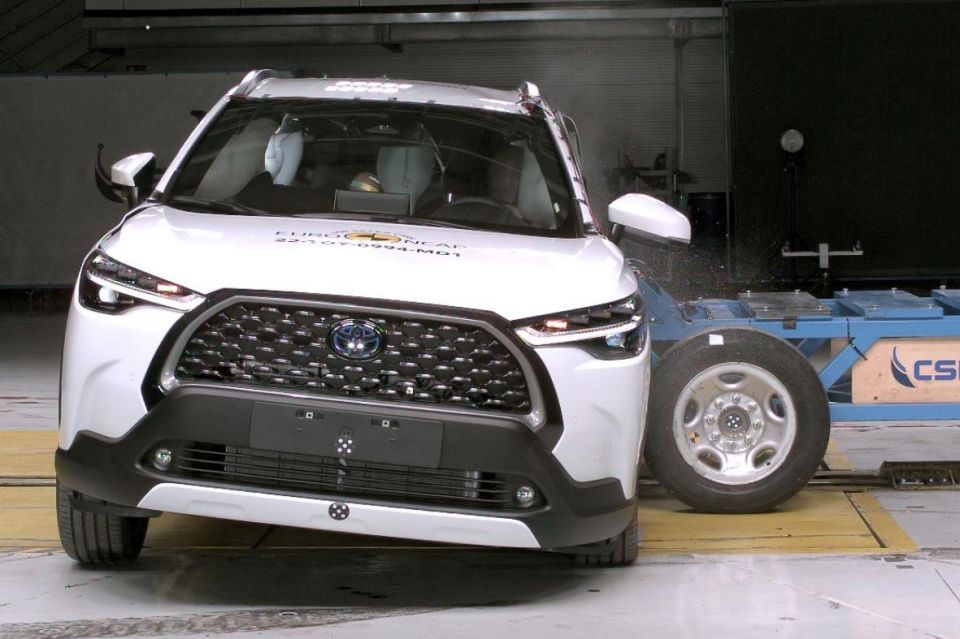
CarExpert helps new car buyers save thousands with expert reviews, honest advice, and transparent pricing – no dealer pressure and no sales games.
Applicable to all variants, the Corolla Cross managed 85 per cent for adult occupant protection, 88 per cent for child occupant protection, 87 per cent for vulnerable road user protection, and 83 per cent for safety assist.
ANCAP praised the Corolla Cross for achieving the best vulnerable road user score against the 2020-22 criteria at the time, though only Marginal protection of the driver’s chest was recorded in the frontal offset test, with a penalty applied.
Standard safety features include:
GXL adds:
Atmos Hybrid adds:
The Corolla Cross is backed by a five-year, unlimited-kilometre warranty which extends to seven years on powertrain components if the car is serviced using Toyota’s capped-price service schedule.
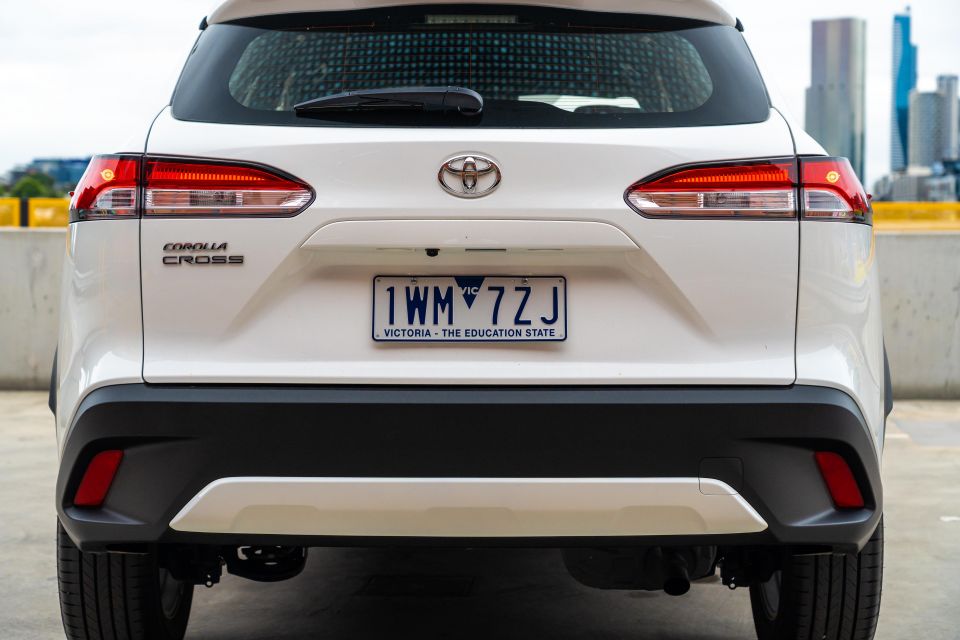
Maintenance is required every 12 months or 15,000 kilometres – whichever comes first. Toyota offers affordable capped-price servicing for the Corolla Cross, with the first five services capped at $230 each.
While Toyota claims thrifty fuel consumption of 6.0L/100km, we were seeing closer to 8-8.5L/100km (indicated) in real-world mixed driving conditions including peak-hour commuting and freeway stints.
Given the Corolla Cross Hybrid can achieve under 5.0L/100km in the real world, it’s little wonder why customers opt for the electrified version.
Sure it’s dressed like a fleet special, but the base Corolla Cross shows off the solid foundations of this crossover range.
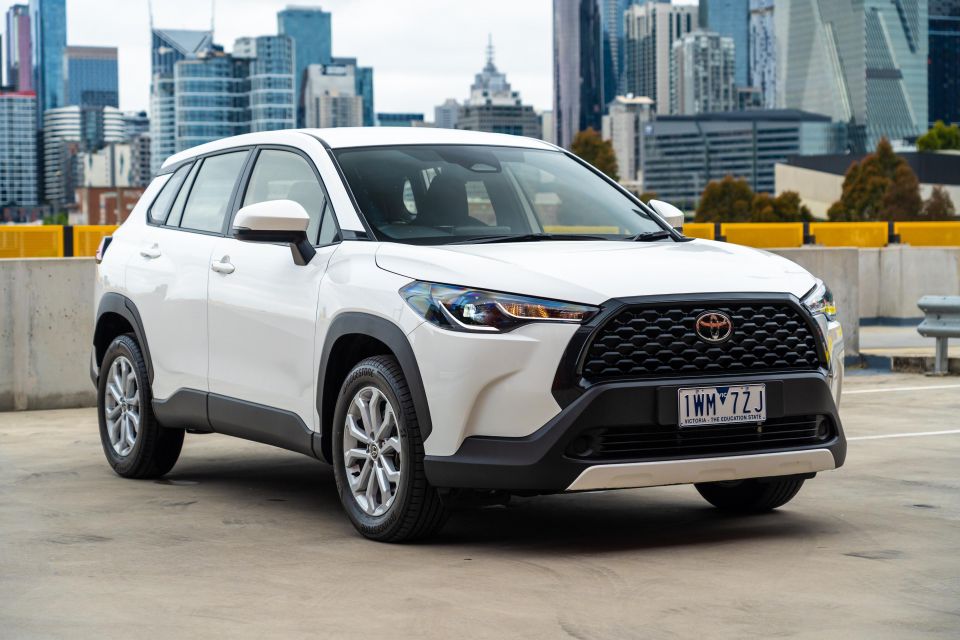
If you’re looking for a safe, sensible, no-frills compact SUV that covers all bases and then some, the base Corolla Cross could be a good bet. It’s cheap to buy and service, and is kitted out well for the money. In typical Toyota fashion, it’s a vehicle you can buy with peace of mind; although, it won’t ignite the senses.
With that said, our recommendation would be to get the GX Hybrid, which is worth every cent of its $2500 premium thanks to the significant efficiency and refinement gains – not to mention higher resale – that come with its 2.0-litre petrol-electric hybrid drivetrain. That’s if you can get your hands on one.
Given the long wait times it may also be worth checking out the new Hyundai Kona too, which offers a base grade in both petrol and hybrid for similar money with competitive levels of practicality and technology but with a design that will ignite the senses a bit more than this Toyota. Plus, you’ll likely be waiting a shorter period for one.

Click the images for the full gallery
BUY: Toyota Corolla Cross MORE: Everything Toyota Corolla Cross
CarExpert helps new car buyers save thousands with expert reviews, honest advice, and transparent pricing – no dealer pressure and no sales games.
James is an automotive journalist based in Melbourne, Australia. Before joining CarExpert.com.au in 2020, James has worked at leading auto media outlets including Carsales and CarAdvice, as well as at Pulse agency for Ford Australia's communications team. In 2019 James made Mumbrella's 'Top 20 most prolific web authors in Australia' list after publishing 1,360 articles between March 1, 2018 and February 28, 2019 for CarAdvice. James is also an Ambassador for Drive Against Depression – an Australian charity whose mission is to support mental wellness through the freedom of driving and a shared love of cars.


Max Davies
5 Days Ago
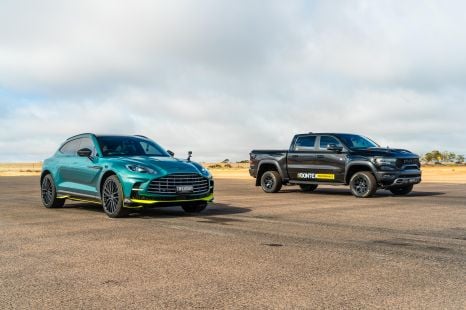

Paul Maric
5 Days Ago
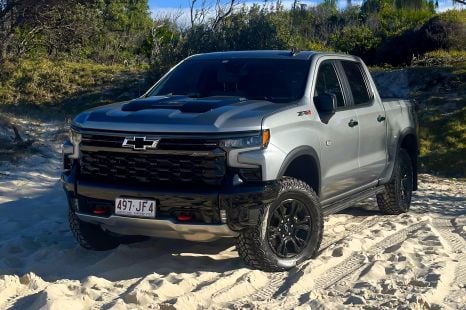

William Stopford
4 Days Ago
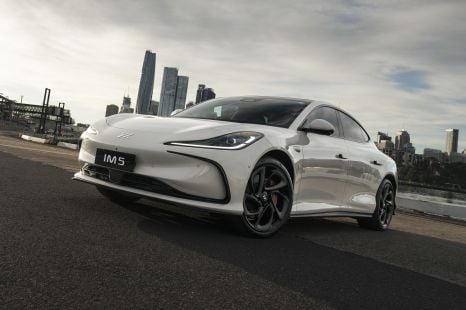

William Stopford
3 Days Ago
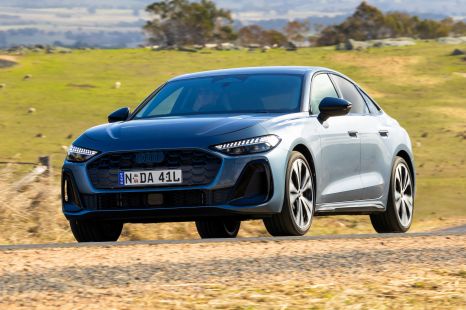

James Wong
2 Days Ago
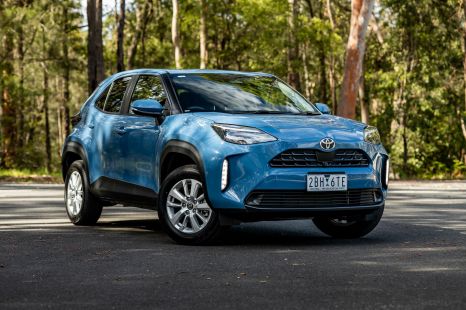

Matt Campbell
1 Day Ago